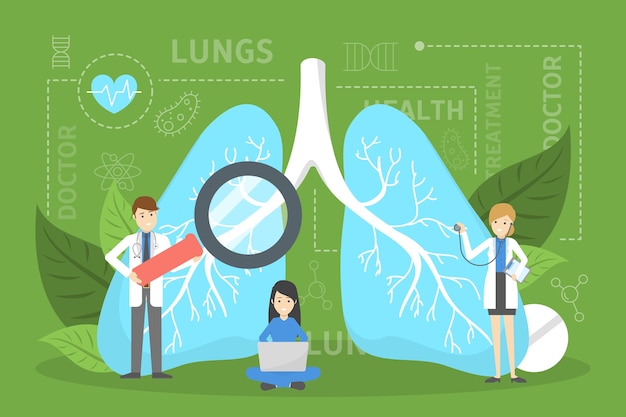Shallow Breathing vs. Deep Breathing
Although the average person’s lungs can hold about 6 liters of air, we usually breathe in much less. It’s surprising how little of our lung capacity we actually use; this is often referred to as shallow or chest breathing. Shallow breathing is exactly what it sounds like and can be caused by poor posture, stiff muscles, or just being inactive. Most of our breaths are shallow because it’s not practical to take deep breaths constantly throughout the day. However, if shallow breathing is your only form of breathing, you’re only using a small part of your lung capacity, which isn’t good for your lungs. It causes stagnant air and pollutants to build up in the lungs, leading to fatigue, sluggish respiratory function, and decreased tissue performance.
Deep Breathing Exercises for Lung Cleansing
Find a quiet and relaxing place to sit. Close your eyes and start breathing deeply through your nose, using your belly. Count to five as you breathe in, and even when you feel you can’t inhale anymore, try to take in a little more air. Allow your lungs and stomach to fully expand. This deep breath reaches the deepest parts of your lungs, filling them with fresh oxygen and breaking up any toxins or pollutants. Hold your breath for a few seconds, then exhale slowly over another five count. When you think you can’t push out any more air, continue to exhale from deep within your lungs and stomach. You should feel your chest and abdomen contract inward. Repeat this exercise nine times daily. This routine will not only help cleanse your lungs but will also reduce stress. Soon, you’ll start noticing positive changes!
Health Benefits of Deep Breathing Exercises
While lungs aren’t muscles, they can still be exercised. Neglecting to exercise your lungs can affect your respiratory system and lead to stiffness in the related muscles and even the rib cage, which reduces lung elasticity and encourages shallow breathing. When stale air remains in the lung tissues, it prevents fresh oxygen from entering the bloodstream effectively.
People who exercise, especially athletes, tend to have larger lung capacities because they breathe deeply more often. Deep, regular breathing expands the diaphragm and the lung air pockets, providing better oxygenation to body cells. This not only improves overall health but also enhances the performance of your body’s systems and boosts energy levels. Deep breathing even helps stretch out the torso—just look at Olympic swimmers, who often have larger torsos due to this practice. Our bodies need oxygen for complete cell development, and it’s impossible to maintain good health without sufficient oxygen.
Lung Cleansing Improves Lung Performance
Taking deep breaths that fully use your lung capacity helps cleanse the lungs and provides your body’s cells with more nourishing oxygen. Shallow breathing allows toxins to build up, saps your energy, and decreases mental alertness. Practicing daily breathing exercises is crucial to keep your body clean and supply your inner systems with the oxygen they need to function optimally. Proper lung function is especially important during exercise, as your body relies on oxygen for energy. Inadequate lung function can significantly reduce the intensity and duration of your workouts. Incorporating deep breathing exercises into your daily routine will cleanse your lungs and balance your body, leading to significant improvements over time.
Lung Cleansing Herbs
Plants like oregano, orange peel, elecampane, eucalyptus, peppermint, lungwort, osha root, chaparral, and lobelia have been used for generations as natural remedies for respiratory issues. These herbs are available as individual tinctures and extracts, but for convenience, Global Healing offers a product called Lung Health. This supplement contains a blend of organic and wildcrafted herbs known to support respiratory health, promote normal lung functions, and cleanse your lungs of harmful substances.
How to Cleanse Your Lungs Naturally
Incorporating these practices and herbs into your daily routine can greatly enhance your lung health and overall well-being. Remember, making small changes consistently can lead to significant improvements in your respiratory health.

